Annual Applied Complexity Network and Board of Trustees Symposium: The Complexity of Intelligence - New Science for Hybrid Intelligence - Speakers
From Santa Fe Institute Events Wiki
| Navigation |
Symposium
November 3 – 4, 2017
Speakers include:
Russ Angold
Ekso Bionics Co-Founder
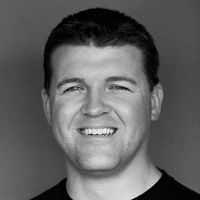
Mr. Angold is the Co-Founder and has served as the Chief Technology Officer of Ekso Bionics since December 2011. From the founding of Ekso Bionics until December 2011, Mr. Angold served as Vice President of Engineering. Prior to joining Ekso Bionics, Mr. Angold held various engineering positions at Rain Bird Corporation, Berkeley Process Control and the Irrigation Training and Research Center in San Luis Obispo, California. Mr. Angold is also the Founding President and Chairman of the Bridging Bionics Foundation. Mr. Angold is a registered Professional Mechanical Engineer and holds a bachelor’s degree in BioResource and Agricultural Engineering from California Polytechnic State University, San Luis Obispo.
Esther Dyson
EDventure Holdings Chairman
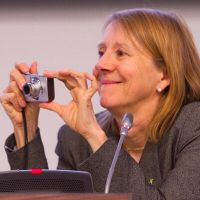
Esther Dyson(@edyson) is chairman of EDventure Holdings. Her primary activity is investing in and nurturing start-ups, with a recent focus on health care, human capital and aerospace. Overall, she is fascinated by new business models, new technologies and new markets (both economically and politically). From October 2008 to March of 2009, she lived in Star City outside Moscow, Russia, training as a backup cosmonaut. Apart from this brief sabbatical, she is an active board member for a variety of startups.
Jessica Flack
Santa Fe Institute Professor

Jessica Flack is a professor at SFI where she also runs the Collective Computation Group. The focus of C4 research is on fundamental problems in evolutionary theory concerning collective behavior, collective computation, and collective intelligence—at all levels of biological organization—from societies of cells to societies of individuals to machine-human hybrid societies. C4 researchers use insights and tools from statistical physics, information theory, evolutionary theory, biology, cognitive science, complexity science, animal behavior, and theoretical computer science.
Read more about Flack's research on Quanta Magazine: How Nature Solves Problems Through Computation
Alison Gopnik
University of California, Berkeley Professor

Alison Gopnik is a professor of psychology and affiliate professor of philosophy at the University of California at Berkeley. She received her BA from McGill University and her PhD. from Oxford University. She is an internationally recognized leader in the study of children’s learning and development and was the first to argue that children’s minds could help us understand deep philosophical questions. She is a columnist (every other week) for The Wall Street Journal. She is the author of over 100 journal articles and several books including “Words, thoughts and theories” (coauthored with Andrew Meltzoff), MIT Press, 1997, and the bestselling and critically acclaimed popular books "The Scientist in the Crib" (coauthored with Andrew Meltzoff and Patricia Kuhl) William Morrow, 1999, and "The Philosophical Baby; What children’s minds tell us about love, truth and the meaning of life" Farrar, Strauss and Giroux, 2009. She has also written widely about cognitive science and psychology for Science, The Times Literary Supplement, The New York Review of Books, The New York Times, New Scientist and Slate, among others. And she has frequently appeared on TV and radio including “The Charlie Rose Show” and “The Colbert Report”. She has three sons and lives in Berkeley, California with her husband Alvy Ray Smith.
Christof Koch
Allen Institute Chief Scientist & President

Christof Koch joined the Allen Institute as Chief Scientific Officer in 2011 and became President in 2015.
He received his baccalaureate from the Lycée Descartes in Rabat, Morocco, his M.S. in physics from the University of Tübingen in Germany and his Ph.D. from the Max-Planck-Institut für Biologische Kybernetik, Tübingen. Subsequently, he spent four years as a postdoctoral fellow in the Artificial Intelligence Laboratory and the Brain and Cognitive Sciences Department at the Massachusetts Institute of Technology. From 1987 until 2013, he was a professor at the California Institute of Technology (Caltech) in Pasadena, from his initial appointment as Assistant Professor, Division of Biology and Division of Engineering and Applied Sciences in 1986, to his final position as Lois and Victor Troendle Professor of Cognitive & Behavioral Biology.
David Krakauer
Santa Fe Institute President and William H. Miller Professor of Complex Systems

David’s research focuses on the evolutionary history of information processing mechanisms in biology and culture. This includes genetic, neural, linguistic and cultural mechanisms. The research spans multiple levels of organization, seeking analogous patterns and principles in genetics, cell biology, microbiology and in organismal behavior and society. At the cellular level David has been interested in molecular processes, which rely on volatile, error-prone, asynchronous, mechanisms, which can be used as a basis for decision making and patterning. David also investigates how signaling interactions at higher levels, including microbial and organismal, are used to coordinate complex life cycles and social systems, and under what conditions we observe the emergence of proto-grammars. Much of this work is motivated by the search for 'noisy-design' principles in biology and culture emerging through evolutionary dynamics that span hierarchical structures.
John Krakauer
Johns Hopkins University School of Medicine Professor
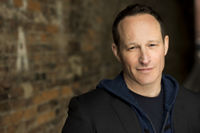
Dr. Krakauer is currently John C. Malone Professor of Neurology, Neuroscience, and Physical Medicine and Rehabilitation, and Director of the Brain, Learning, Animation, and Movement Lab (www.BLAM-lab.org) at The Johns Hopkins University School of Medicine.
Dr. Krakauer is also co-founder of the video gaming company Max and Haley, and of the creative engineering Hopkins-based project named KATA. KATA and M&H are both predicated on the idea that animal movement based on real physics is highly pleasurable and that this pleasure is hugely heightened when the animal movement is under the control of our own movements. A simulated dolphin and other cetaceans developed by KATA has led to a therapeutic game, interfaced with an FDA-approved 3D exoskeletal robot, which is being used in an ongoing multi-site rehabilitation trial for early stroke recovery. Dr. Krakauer’s book, “Broken Movement: The Neurobiology of Motor Recovery after Stroke” will be published by the MIT Press in the autumn of 2017.
Melanie Mitchell
Portland State University Professor, Santa Fe Institute External Professor
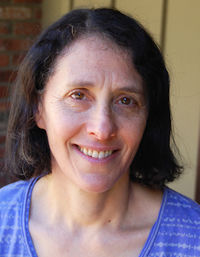
Melanie Mitchell is Professor of Computer Science at Portland State University, and External Professor and Member of the Science Board at the Santa Fe Institute. She attended Brown University, where she majored in mathematics and did research in astronomy, and the University of Michigan, where she received a Ph.D. in computer science, Her dissertation, in collaboration with her advisor Douglas Hofstadter, was the development of Copycat, a computer program that makes analogies. She has held faculty or professional positions at the University of Michigan, the Santa Fe Institute, Los Alamos National Laboratory, the OGI School of Science and Engineering, and Portland State University. She is the author or editor of five books and over 80 scholarly papers in the fields of artificial intelligence, cognitive science, and complex systems. Her most recent book, Complexity: A Guided Tour (Oxford, 2009), won the 2010 Phi Beta Kappa Science Book Award. It was also named by Amazon.com as one of the ten best science books of 2009, and was longlisted for the Royal Society's 2010 book prize. Melanie originated the Santa Fe Institute's Complexity Explorer project, which offers online courses and other educational resources related to the field of complex systems.
Michael Nielsen
Y Combinator Research Fellow
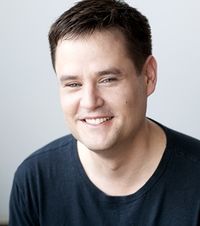
Michael Nielsen is a scientist, writer, and programmer. He works on ideas and tools that help people think and create, both individually and collectively. He's a Research Fellow at Y Combinator Research. He's also a member of the Steering Committee for the journal Distill, and writes an occasional column for Quanta Magazine.
Tomaso Poggio
McGovern Institute for Brain Research at MIT Eugene McDermott Professor
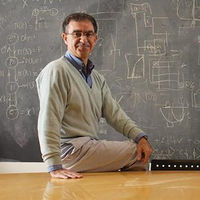
Tomaso A. Poggio, is the Eugene McDermott Professor in the Dept. of Brain & Cognitive Sciences at MIT and the director of the NSF Center for Brains, Minds and Machines at MIT. He is a member of the Computer Science and Artificial Intelligence Laboratory and of the McGovern Brain Institute. He received the Laurea Honoris Causa from the University of Pavia for the Volta Bicentennial, the 2003 Gabor Award, the Okawa Prize 2009, the AAAS Fellowship and the 2014 Swartz Prize for Theoretical and Computational Neuroscience. A former Corporate Fellow of Thinking Machines Corporation and a former director of PHZ Capital Partners, Inc. and of Mobileye, he was involved in starting, or investing in, several other high tech companies including Arris Pharmaceutical, nFX, Imagen, Digital Persona and Deep Mind.
Daniel Rockmore
Dartmouth Profesor, and Santa Fe Institute External Professor
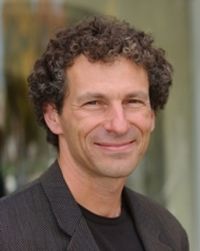
Daniel Rockmore is a Professor of Mathematics and Computer Science at Dartmouth College. His research interests include: Complex Systems, Network Analysis, Machine Learning, Cultural Evolution, Group Theoretic Transforms.
Graham Spencer
Santa Fe Institute Trustee and managing partner at GV
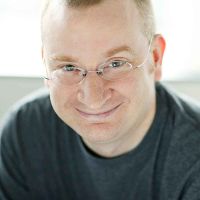
Graham Spencer was an engineering director at Google following the 2006 acquisition of JotSpot, which he co-founded with Joe Kraus. Graham was one of the original six founders of Excite.com and was the chief technology officer of the company until its sale to @Home. In 1999, Graham left Excite@Home to co-found DigitalConsumer.org, a 50,000-member non-profit consumer organization dedicated to protecting fair-use rights for digital media. Graham is also on the board of the Santa Fe Institute.
Brendan Tracey
Santa Fe Institute Program Postdoctoral Fellow
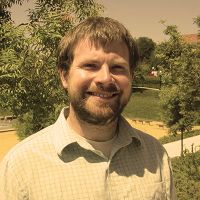
Brendan Tracey is primarily interested in the application of non-traditional ideas to engineering analysis and design.
He received a B.S. in Mechanical Engineering from the University of Rochester and completed his Ph. D. in Aeronautics and Astronautics from Stanford University. He is a post-doc with the Santa Fe Institute and the Department of Aeronautics and Astronautics at the Massachusetts Institute of Technology. At SFI, he researches Multi-Information Source Optimization (MISO).
